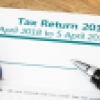- Posted byadmin
- Self Assessment, Tax Deductible Expenses, Personal Tax, Tax Planning, Budget, HMRC, Financial Planning
- 0 Comments
Tax Busting Tips Part Two - Business Planning.
There are so many things that could affect your tax bill. Not all of these will be relevant to you but to help you get to grips with them we have created a list of nearly 100 things that you should think about, or discuss with your accountant in the run up to the Self-Assessment deadline.
Below you will find tips 20-26 which relate to business planning, esecially for limited companies.
Not sure you can make sense of this list? Then we can help. We will do all the hard work to minimise your tax bill, so that you don't have to. We can do all this for a set price and in a guaranteed two week turnaround.
20. Make sure you extract money from your limited company in the most tax efficient way. Look to use dividends to avoid national insurance charges. Often the best route is a mixture of a low PAYE salary and dividends.
21. If you pay regular dividends do you ensure they are correctly recorded with board resolutions and dividend vouchers to ensure there is no danger of the Revenue trying to reclassify them as loans, or even salary?
22. If you are purchasing goodwill, which can be a large amount, to get tax relief you need to operate through a limited company and not as a sole trader or partnership?
23. Have you looked at making a senior employee, a partner in the business? This can save lots of employers’ national insurance on their salary, and provide additional incentives to work hard for the business.
24. Have you looked to see if you can extract money from your company tax efficiently by paying yourself royalties or interest, or by selling an asset to the company to use up your Capital Gains annual exemption?
25. If you own the business property, have you looked at whether it is better to hold it personally or in the company?
26. If your limited company provides your personal services to only a few customers be aware that IR35 could make the company liable for national insurance and PAYE on 95% of the money you earn for the company. Make sure you have taken the necessary steps to avoid IR35 applying to your contracts.









